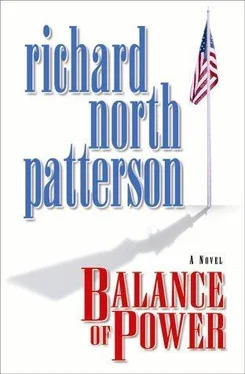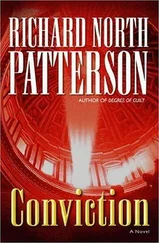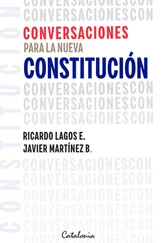Richard Patterson - Balance of Power
Здесь есть возможность читать онлайн «Richard Patterson - Balance of Power» весь текст электронной книги совершенно бесплатно (целиком полную версию без сокращений). В некоторых случаях можно слушать аудио, скачать через торрент в формате fb2 и присутствует краткое содержание. Жанр: Старинная литература, на английском языке. Описание произведения, (предисловие) а так же отзывы посетителей доступны на портале библиотеки ЛибКат.
- Название:Balance of Power
- Автор:
- Жанр:
- Год:неизвестен
- ISBN:нет данных
- Рейтинг книги:5 / 5. Голосов: 1
-
Избранное:Добавить в избранное
- Отзывы:
-
Ваша оценка:
- 100
- 1
- 2
- 3
- 4
- 5
Balance of Power: краткое содержание, описание и аннотация
Предлагаем к чтению аннотацию, описание, краткое содержание или предисловие (зависит от того, что написал сам автор книги «Balance of Power»). Если вы не нашли необходимую информацию о книге — напишите в комментариях, мы постараемся отыскать её.
Balance of Power — читать онлайн бесплатно полную книгу (весь текст) целиком
Ниже представлен текст книги, разбитый по страницам. Система сохранения места последней прочитанной страницы, позволяет с удобством читать онлайн бесплатно книгу «Balance of Power», без необходимости каждый раз заново искать на чём Вы остановились. Поставьте закладку, и сможете в любой момент перейти на страницу, на которой закончили чтение.
Интервал:
Закладка:
"Mary," Lenihan countered with quiet insistence, "the leverage Sarah imagines will exist only if the President wins. If he loses, and he still may, this lawsuit ceases to exist. There'll be no money, no trial, no justice for your family . . ."
"Is a sealed settlement 'justice for her family'?" Sarah asked. "A secret payment in return for a dismissal, perhaps dooming the President's chances of sustaining a veto? Instead of trying to save lives, Mary would be helping the SSA to keep anyone else from suing the gun industry, ever. So why don't we call this what it is, Bob—blood money."
A flush crept across Lenihan's neck. "At least the SSA will have paid for what happened. They'll know it, and Mary will know it. There are a thousand ways to dedicate some of this money to the memory of Inez, Joan, and Marie, ways that would have touched them."
How many ways, Sarah wanted to ask, can you say 'venal'? She felt the clutch of her stomach, and then, glancing at Mary, decided that silence was more eloquent than speech.
Head lowered, Mary was rubbing her eyes. Even Lenihan knew enough to join Sarah in her quiet.
They both watched Mary for some moments. Then, squaring her shoulders, Mary looked up at Lenihan, her voice quiet but clear. "I just can't do it," she told him. "No matter what."
Sarah felt a brief spurt of elation. But there was no defiance in Mary's words, no hope of a public triumph. Only a curious resignation, a note of weary fatalism. Perhaps the torment of this decision had exhausted her but, if only for her own sake, Sarah selfishly wished for a greater show of spirit.
Lenihan saw this at once. "Exactly what are you saying, Mary?"
"That it's wrong to take money from these people." A hint of steel crept into Mary's voice. "Tell them that for me ."
* * *
For the two days after Lenihan's call, Charles Dane worked the phones, pressuring Fasano, cajoling senators to switch their votes. The surface of Washington—including what Dane alone felt as an eerie silence from the White House—remained unchanged.
On the final day, Kerry Kilcannon appeared in the White House press room. "This morning," he began, "I have vetoed the Civil Justice Reform Act . . ."
SEVEN
One day after the veto, at a time which assured that it would consume the newspapers and airwaves for the next twenty-four hours, the story struck.
Shortly after eight o'clock in the morning, a wan Kit Pace appeared in the President's office and handed him copy from a right-wing Internet columnist. Its narrative was devastating: that Kerry was married when his relationship with Lara began; that they had commenced a "two-year clandestine affair" while Lara had covered Capitol Hill for the New York Times; that Lara had become pregnant; that she had "aborted Senator Kilcannon's unborn child"; that she had exiled herself by taking an overseas assignment to preserve his political future; that after Kerry's subsequent divorce, "having laundered their secret, Kilcannon and Costello presented themselves as newly involved, concealing the truth so that they could seek election as America's sweethearts"; and, finally, that "their presence as First Couple is the result of cold-blooded infanticide and a coolheaded deception designed not only to disguise their moral unfitness but to endear themselves to an unsuspecting electorate." The story was accompanied by a verbatim transcript of the counselor's notes from her postabortion interview with Lara, still dazed from anesthesia, her torrent of emotion recorded under the veil of supposed confidence.
Kerry had never seen the notes. The devastation he found there evoked the visceral memory of his own desperation—making call after call which went unanswered; pleading with Lara through her voice mail to save their child; rushing to her apartment to find her gone; her final call to him, once it was done, to say that they had loved each other, that neither had intended harm, that their relationship was finished, that Lara was going away. "I have to start over," had been her final words. "Please, if you still love me, the one gift you can give me is not to make it harder . . ." Then her voice had broken off, just before the click of her telephone preceded a dial tone.
Looking up, Kerry knew at once that Kit had read it all. Within hours, the embarrassment and pain he could see on her face would be reflected, often with less charity, in the hearts and minds of every American within the reach of a television, or radio, or computer, or telephone, or newspaper, or of any friend, neighbor, coworker or stranger at a grocery store who had heard the story first. All that his adversaries had needed to do they had done: the Internet column was a pebble dropped in an electronic pond, and its ripples would swiftly reach the water's edge.
"I've already prepared copies of our statement," she told him. "If we don't get it out now, the Bob Woodward game will start—a media freefor-all, with thousands of reporters competing for new details. At least this way the story will lead with what you have to say."
Gazing at the counselor's notes, Kerry shook his head. "I don't think our statement covers this. It's not enough now."
When Kit had gone, Kerry called Lara and, a few difficult moments later, Minority Leader Chuck Hampton. Then he picked up a legal pad and swiftly scrawled some notes.
* * *
At nine-fifteen, the President appeared in the White House press room. A stunned Frank Fasano watched his office television with Senator Paul Harshman; Fasano had known of the story for less than twenty minutes and he was still absorbing, with no little sense of dread, the pattern and meaning of the events which now enveloped Kerry Kilcannon.
Kilcannon looked somber but composed. I have a brief statement to make, he began. I will not be taking questions.
"My God," Fasano said, "it's true."
"Of course it's true," Harshman answered with grim asperity. "The only value he's ever held is accumulating power."
The caustic remark, Fasano found, induced a brief reflexive sympathy for the President he opposed—even in the face of personal conduct which appalled him. On television, the slightest edge of disdain entered Kilcannon's voice. Te n days ago, the President continued, S enator Jack Slezak came to the White House. He said that he'd received a warning—anony mous, he assured me—that if I vetoed the Civil Justice Reform Act certain facts regarding my life before becoming President would be made public.
Dane, Fasano thought. Only this could explain the confidence with which Dane had assured him that Kilcannon would be beaten. Glancing at Harshman, Fasano surmised that he did not know. Through deliberate hints, Dane had wanted Fasano to discern—at the same time as Kerry Kilcannon—the secret behind Kilcannon's ruin and, to that extent, for Fasano to be complicit in the SSA's hidden exercise of power. Never again would Fasano doubt the risks of defying Charles Dane.
Yesterday, Kilcannon said, I vetoed that bill. This morning an Internet columnist printed a story regarding my relationship to Lara prior to our engage ment. In all factual respects—as opposed to its characterization of our motives or emotions—that story is true.
"Even the abortion," Fasano murmured. In his soul, he believed that abortion was the taking of human life; in the most graphic way, this illustrated the gulf between Fasano and a man he often thought to be devoid of spiritual values—a Catholic who passed himself as personally devoted to the teachings of their Church; a President who "reluctantly" distinguished between his religious beliefs and what government could dictate in the realm of private conduct; an adulterer who—in the hidden recesses of his life—cared nothing for the life of his own child. With unsparing self-knowledge, Fasano realized that his disgust over Kilcannon's acts soon would distance him from his visceral horror at Dane's use of them, enabling him to coldly assess their impact in the public sphere.
Читать дальшеИнтервал:
Закладка:
Похожие книги на «Balance of Power»
Представляем Вашему вниманию похожие книги на «Balance of Power» списком для выбора. Мы отобрали схожую по названию и смыслу литературу в надежде предоставить читателям больше вариантов отыскать новые, интересные, ещё непрочитанные произведения.
Обсуждение, отзывы о книге «Balance of Power» и просто собственные мнения читателей. Оставьте ваши комментарии, напишите, что Вы думаете о произведении, его смысле или главных героях. Укажите что конкретно понравилось, а что нет, и почему Вы так считаете.












